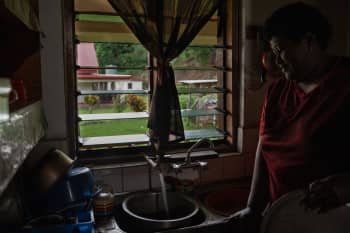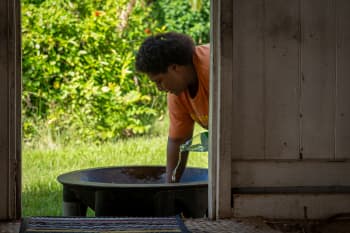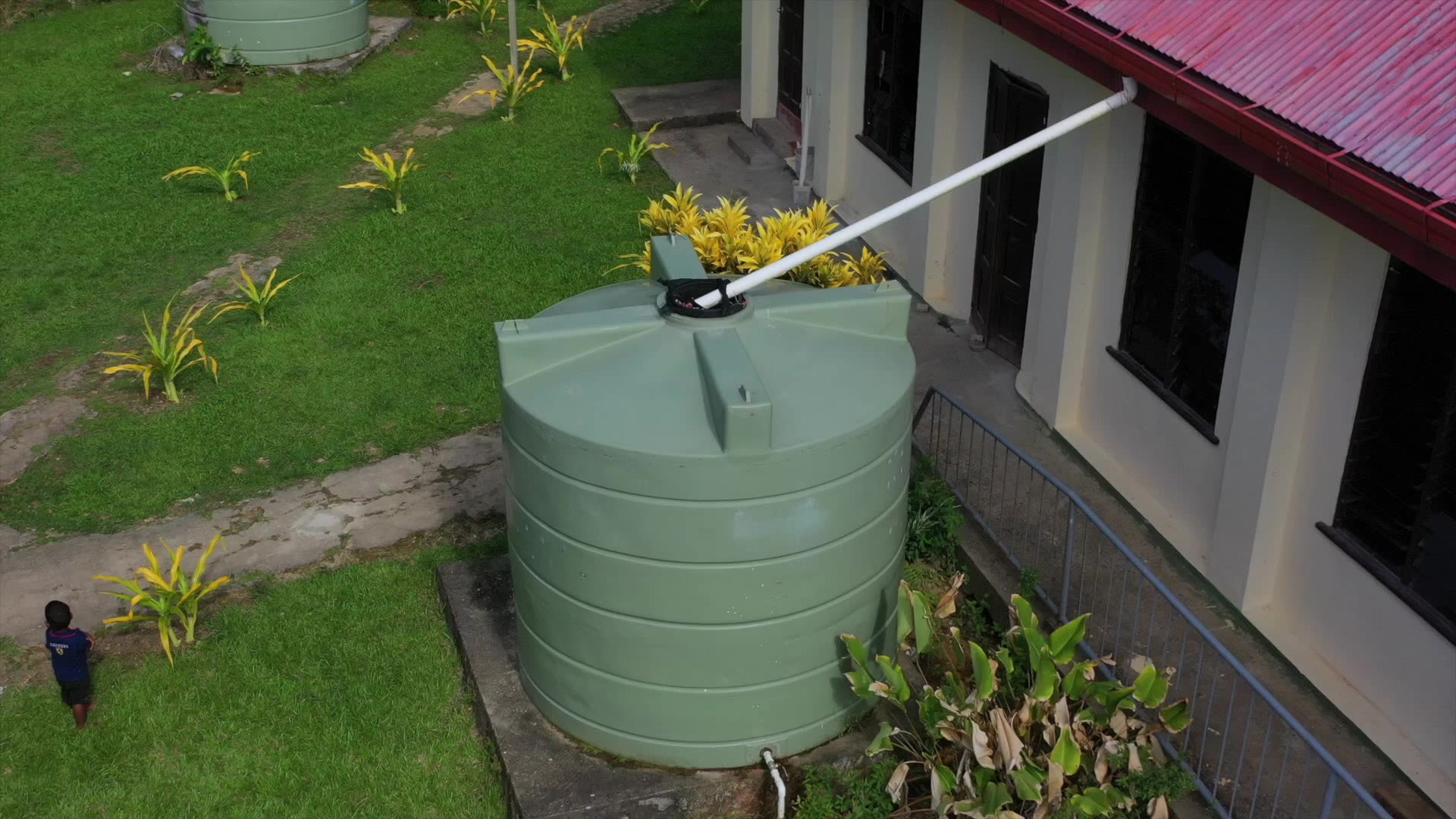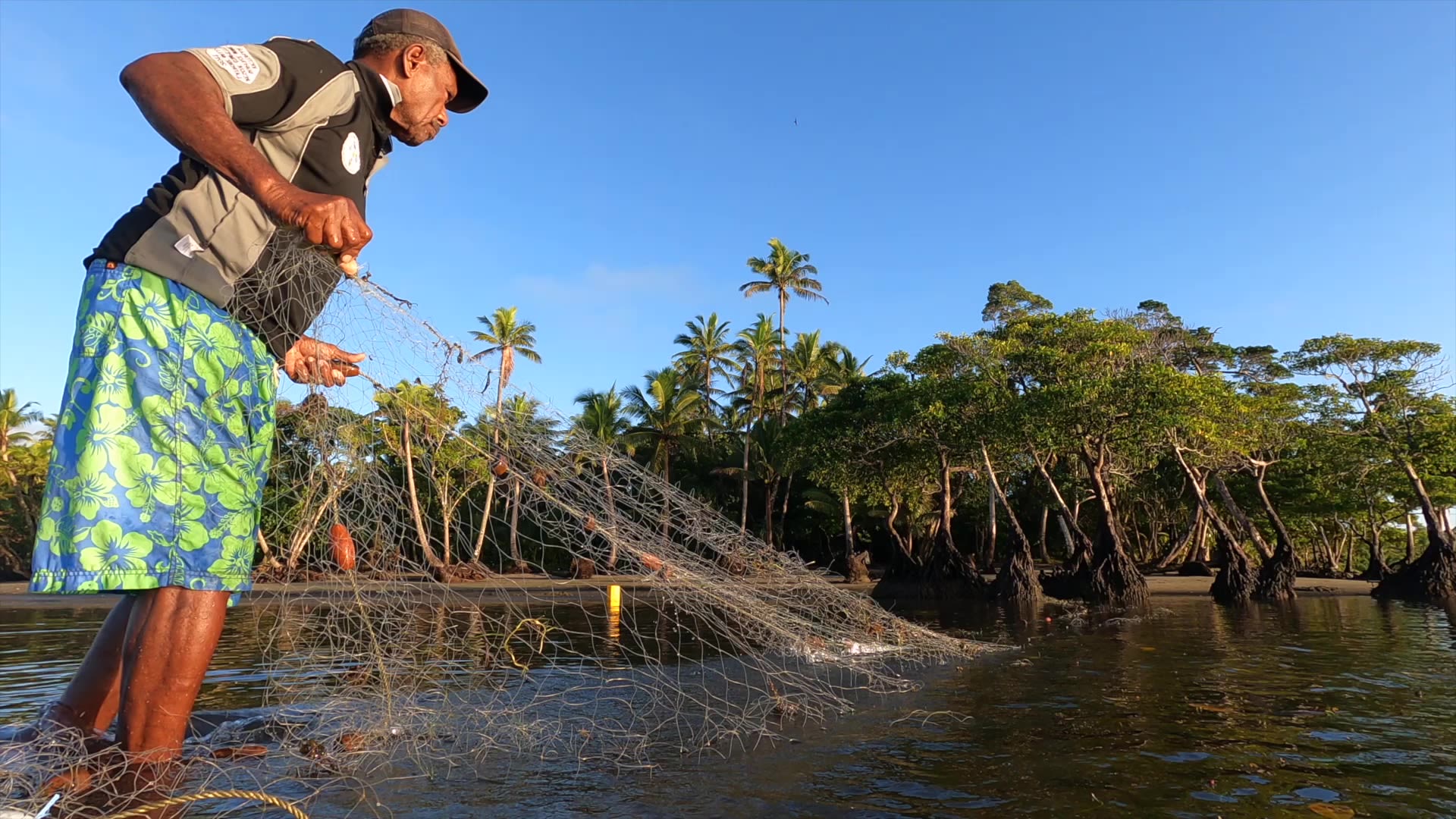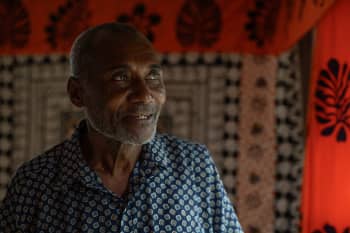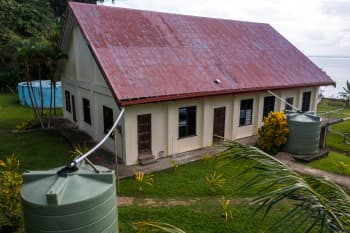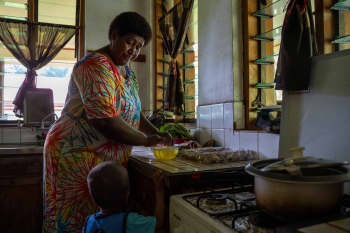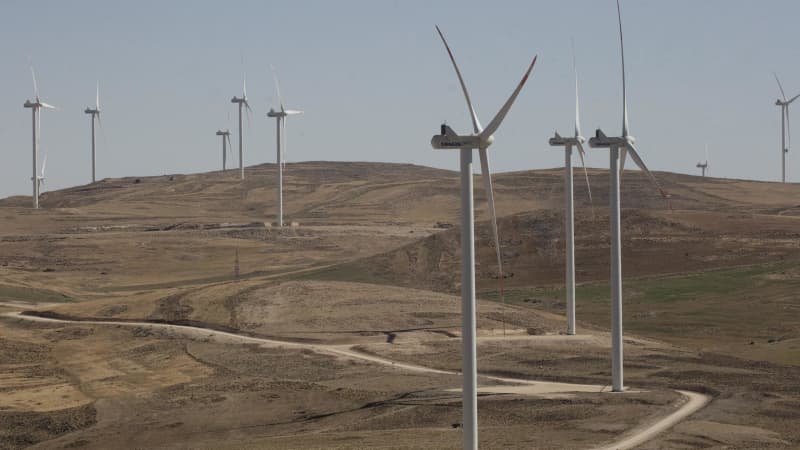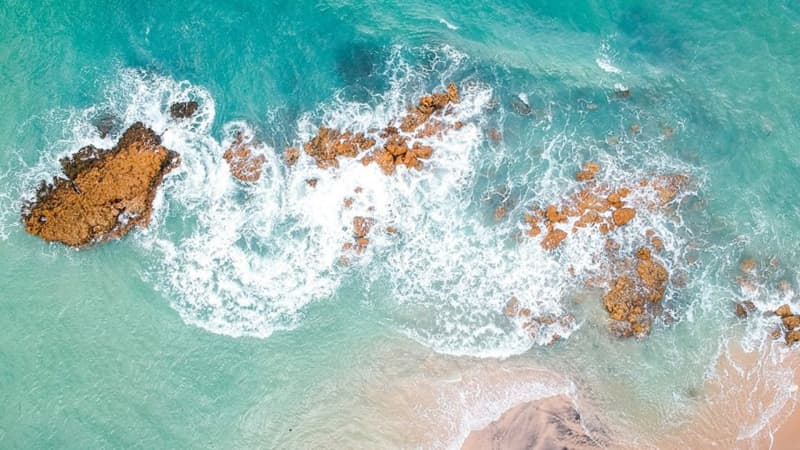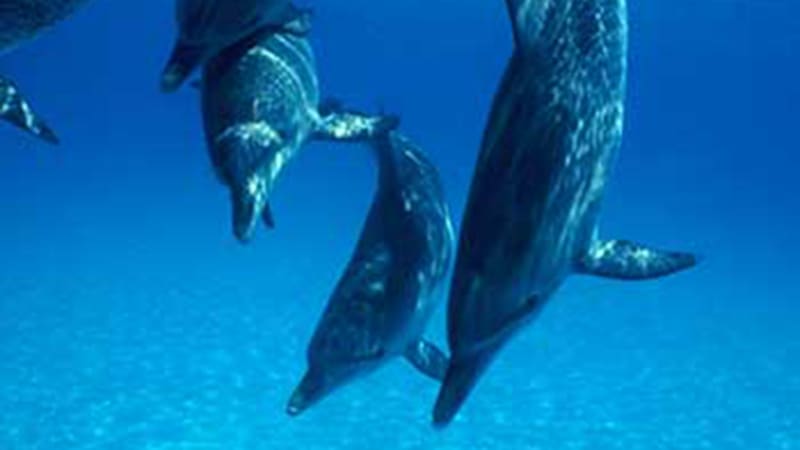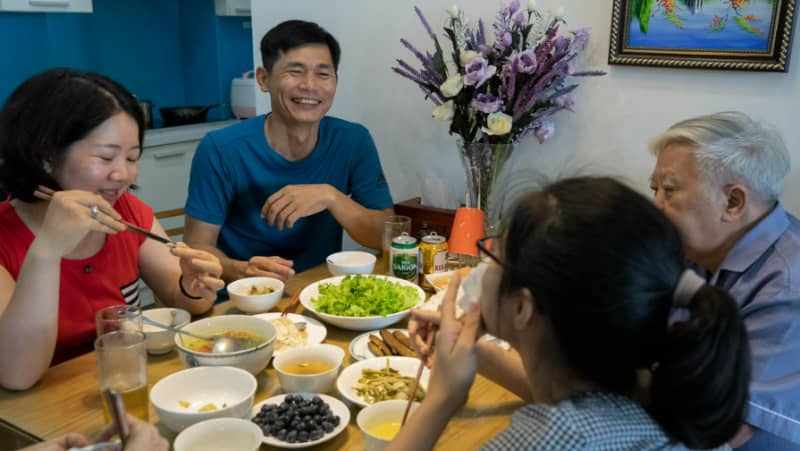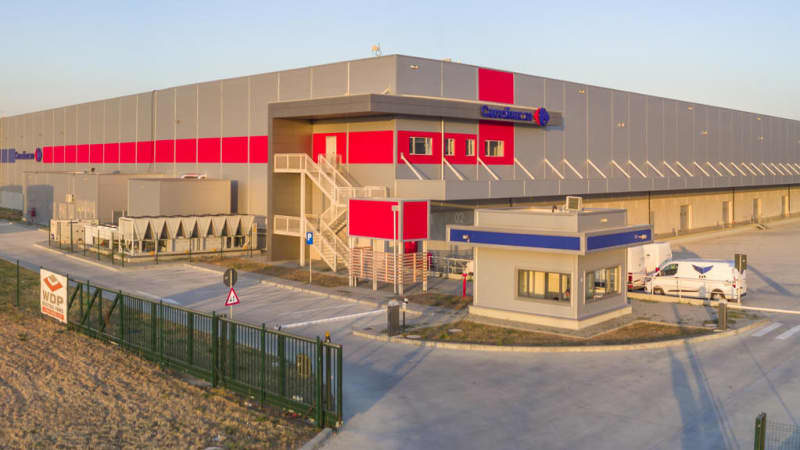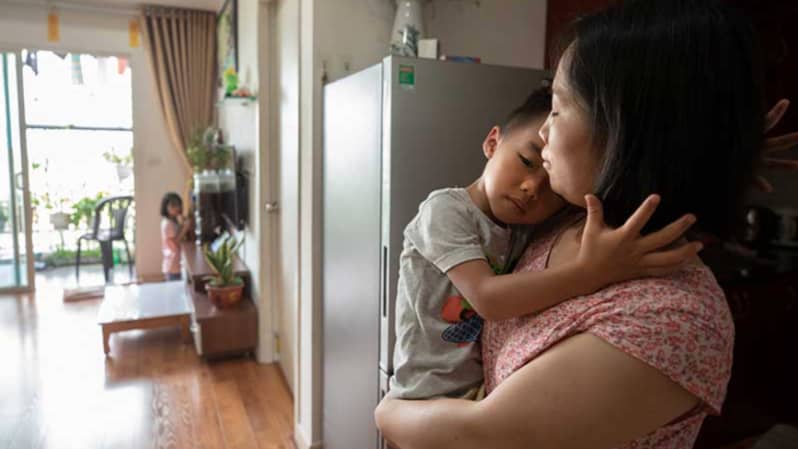In Fiji's Water-Scarce Villages,
a Sovereign Green Bond Turns on the Tap
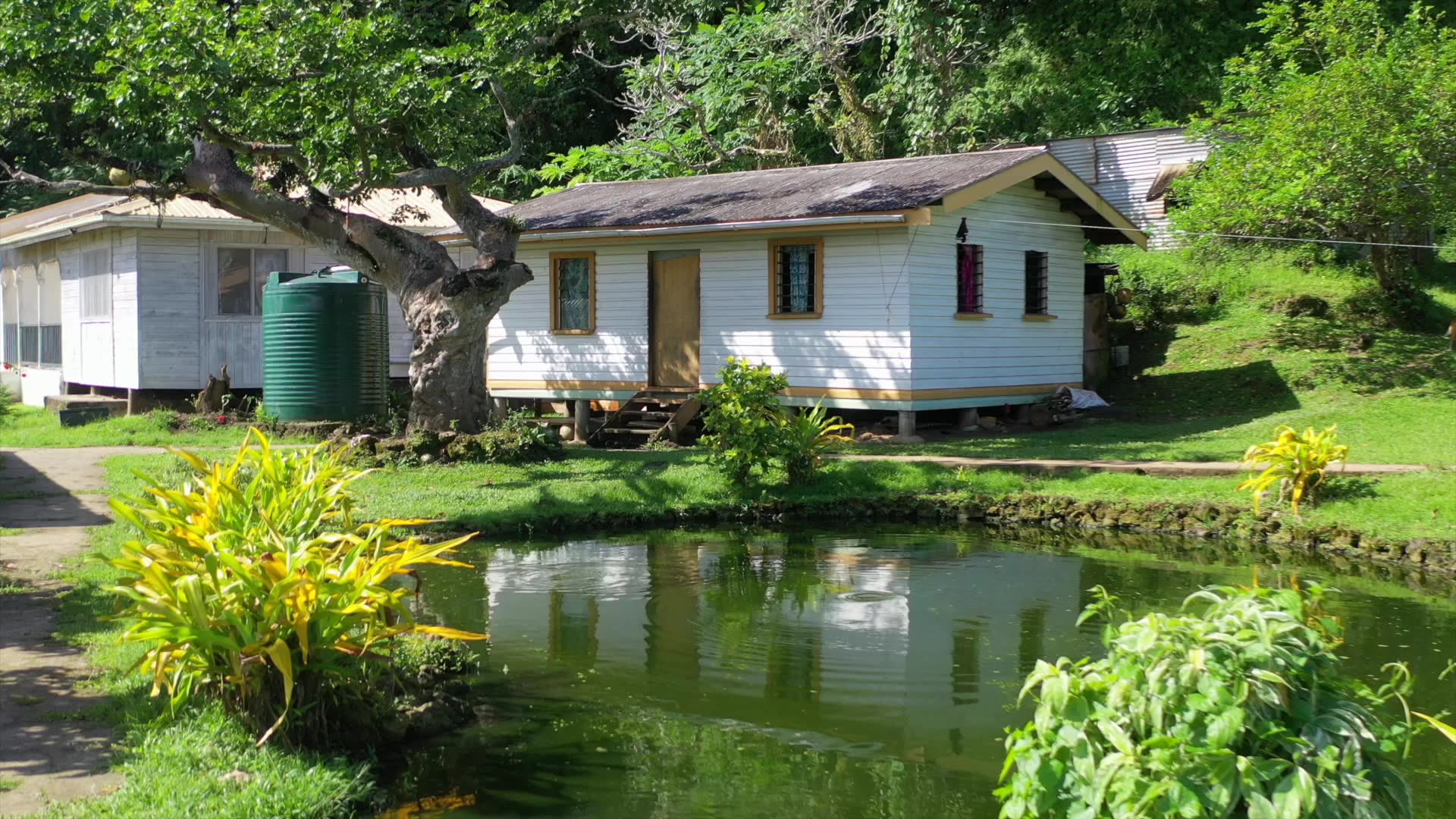
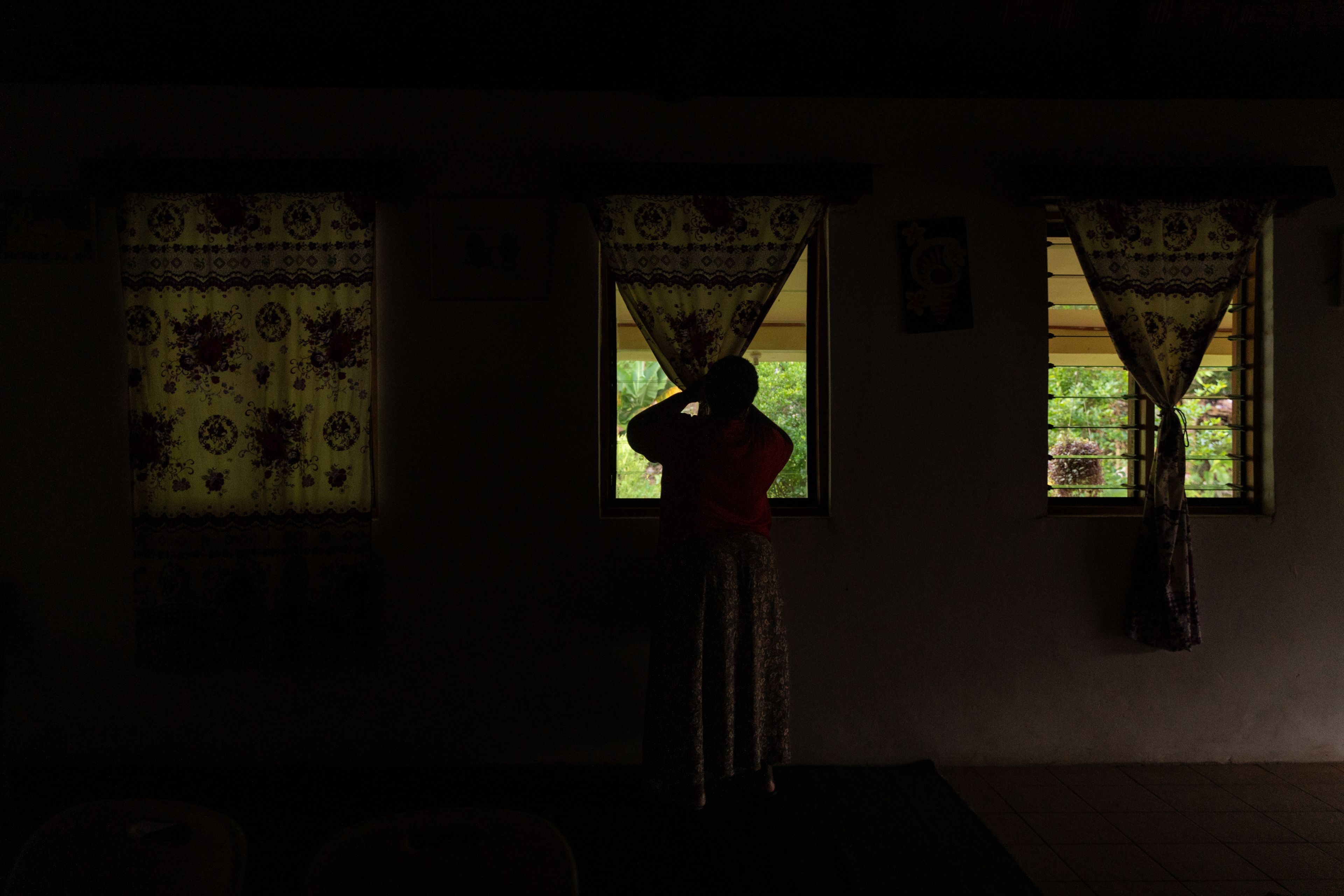
In the village of Vatani, Fiji, as dawn breaks over a palm tree lined horizon, Leba Sekoula places a pot of chicken and cassava soup on a stove to heat. The dish, made with boiled rainwater harvested from a large water tank outside her home, will serve as a tasty and nutritious school lunch for Sekoula’s two young daughters.
In the past, before the installation of her water tank, Sekoula, armed with two containers, would walk to the village center at dawn where she would join other women waiting to receive water from a community tank.
If that water ran out, Sekoula would make additional trips throughout the day to the village beach to scoop buckets of sea water that would take hours to desalinate.
Now, thanks to the water harvesting tank, and a pipe that delivers clean water directly to her kitchen, Sekoula – and other women in her village – have finally shed a lifelong burden.
“[Before], we spent the whole day fetching water,” says Sekoula, who also serves as the village’s community health worker. “Now, we stay with our family, or earn money. We are able to do household chores because water is in our house.”
In Fiji, access to clean and safe drinking water remains a challenge for many of the nation’s rural communities. Watch how proceeds from Fiji’s first-ever sovereign green bond has transformed day-to-day life for one village.
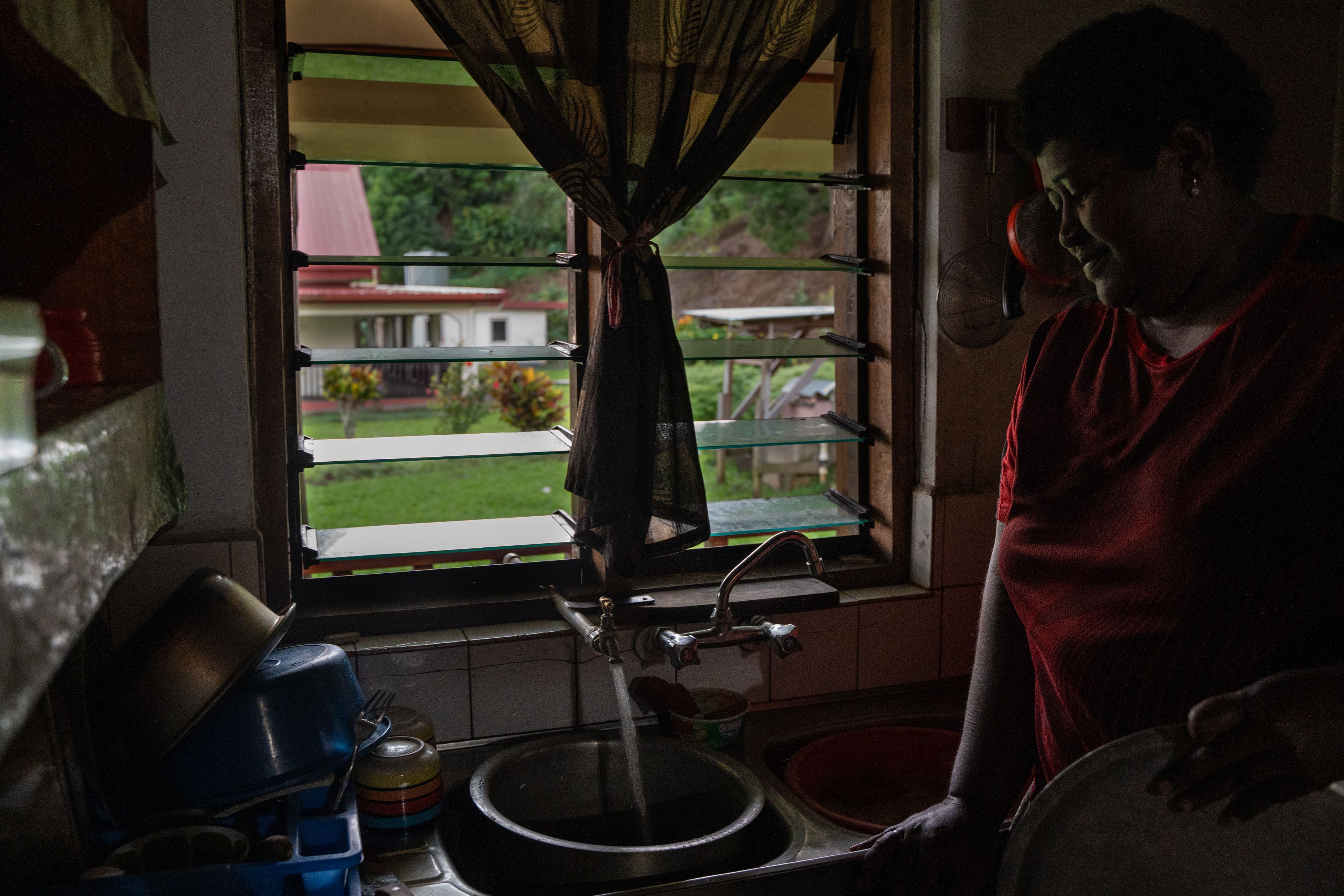
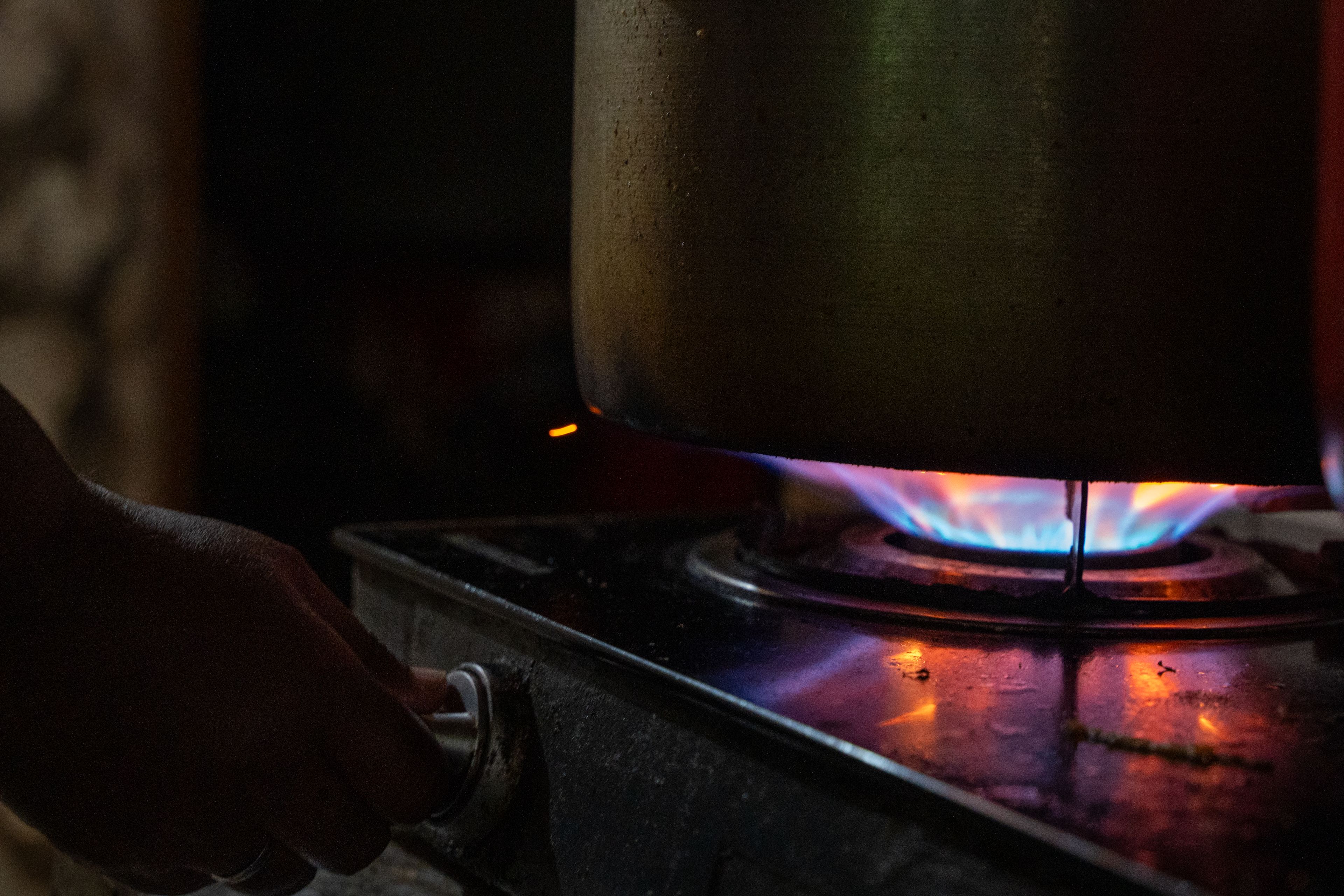
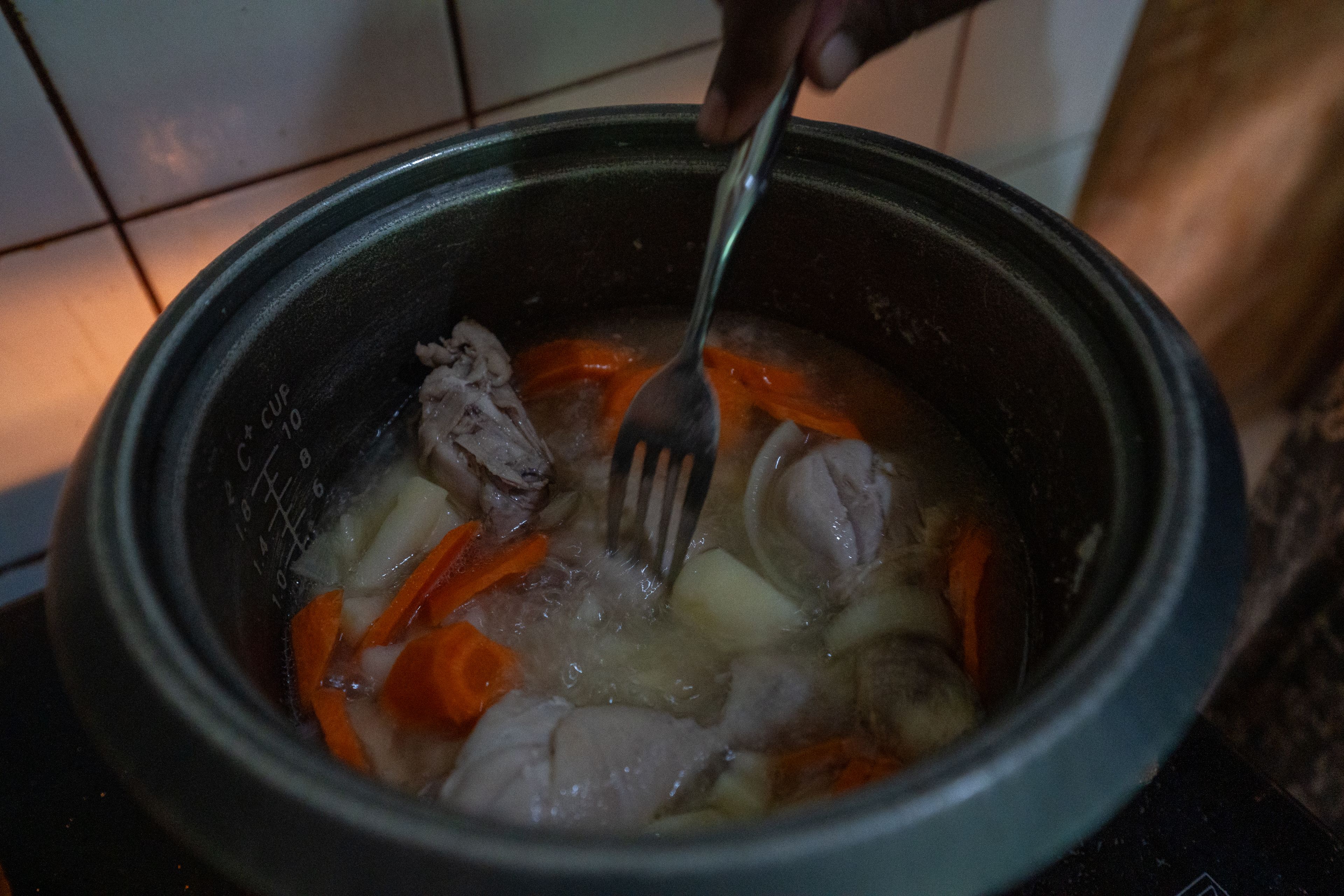
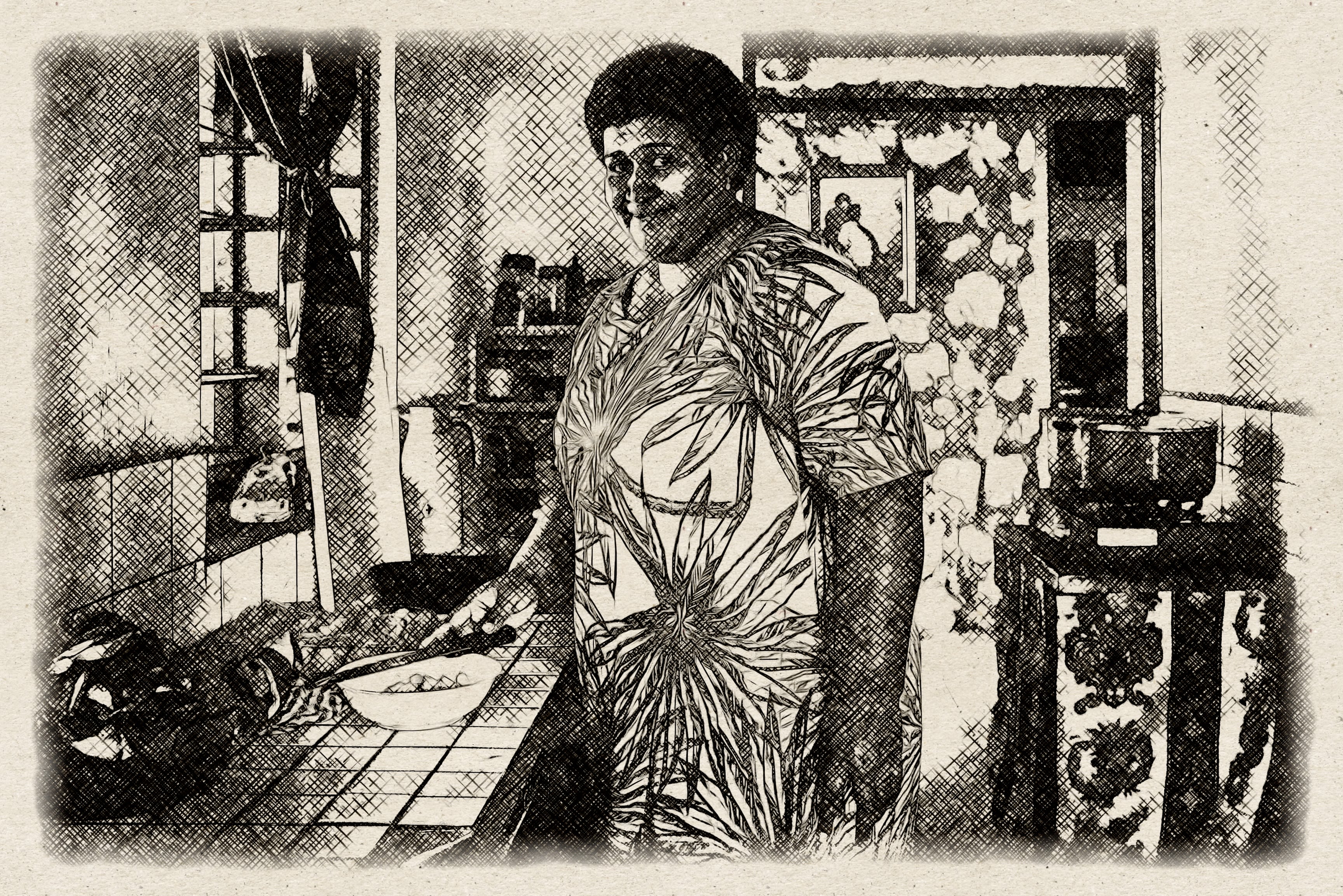
“[Before], we spent the whole day fetching water. Now, we stay with our family, or earn money. We are able to do household chores because water is in our house.”
In Fiji, the South Pacific archipelago famous for the ubiquitous square bottles of Fiji Water, a product beloved by consumers around the world, access to clean and safe drinking water remains a challenge for many of the nation’s rural communities.
Located nearly 2,000 miles east of Australia, amid azure seas, the country, which has more than 300 palm-fringed islands and a population of 900,000, is highly susceptible to the impacts of climate change. Rising sea levels are swallowing swaths of Fiji’s coastline while severe cyclones routinely make landfall. Frequent flooding and saltwater intrusion have poisoned the groundwater and led to water-borne illnesses. Amidst the changing climate, the country’s tourism industry, which constitutes 40 percent of Fiji’s GDP, must balance its environmental impact with economic need.
But thanks to this tiny country’s innovative approach to finance, Fijians like Sekoula now have access to clean drinking water following the issuance of the country’s first-ever sovereign green bond in 2017. (Green bonds are fixed income, liquid financial instruments used to raise funds dedicated to climate-mitigation and adaptation.) The first emerging market to issue a sovereign green bond, the proceeds are now helping improve access to clean water for vulnerable communities across Fiji’s islands, providing more than 42,000 people like Sekoula in 120 rural communities with clean water sources, including 8,000 water tanks.
“With this sovereign green bond, Fiji has established a roadmap for other climate-vulnerable nations in how to use innovative financial instruments to create green capital markets,” says Makhtar Diop, Managing Director, IFC. “As a pioneer issuer, Fiji has proven that all countries, big and small, can help facilitate climate solutions.”
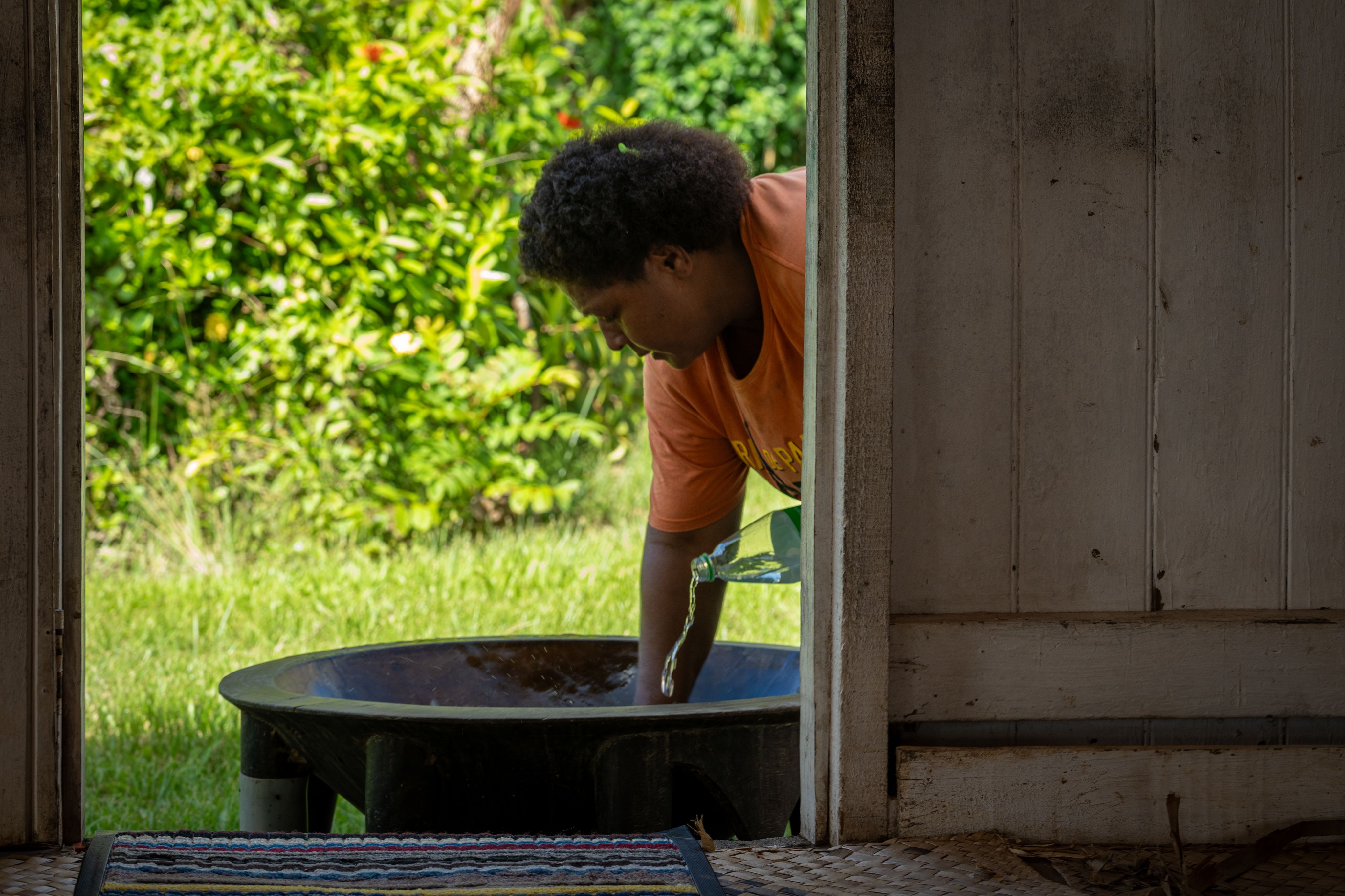



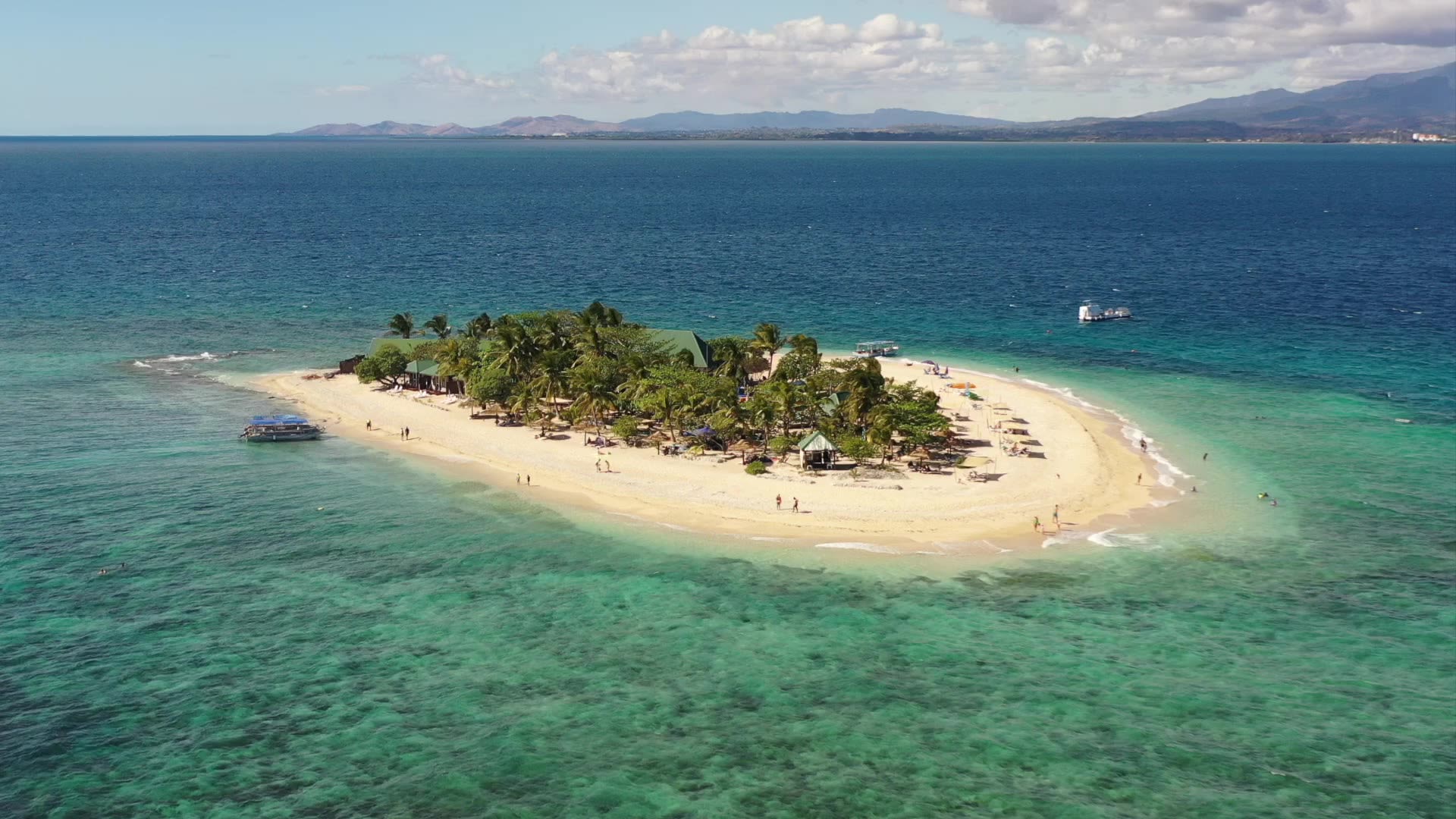
“With this sovereign green bond, Fiji has established a roadmap for other climate-vulnerable nations in how to use innovative financial instruments to create green capital markets. As a pioneer issuer, Fiji has proven that all countries, big and small, can help facilitate climate solutions.”
Makhtar Diop, IFC Managing Director

The Right Time to Send a Green Signal
Fiji’s decision to issue a green bond came after a breakfast meeting with senior representatives from IFC in early 2017, says Ariff Ali, Governor of the Reserve Bank of Fiji.
At the time, Fiji’s government was still picking up the pieces following the wrath of Cyclone Winston -- one of the strongest cyclones ever recorded in the Southern Hemisphere – while also preparing to co-host the United Nations climate change conference, COP23, in Bonn later that year. As a Pacific small island developing state, Fiji needed to send a strong signal to COP attendees – and a global audience -- about its commitment to climate resilience. Over breakfast, Governor Ali floated the ambitious idea of a sovereign green bond. IFC, the World Bank, and the Australian Government agreed to help.
“The timing was right,” says Ali, speaking from his office in the busy port city of Suva. “We just needed someone to partner with us and help with the technicalities.”
Over an intense four-month period, IFC and World Bank staff helped colleagues at the Reserve Bank of Fiji – the country’s central bank – draft a green bond policy framework modelled on the internationally approved Green Bond Principles. The collaboration took place under a broader Capital Markets Development Project supported by the Australian and New Zealand governments.
Early on, Ali says, it was essential for the Fijian government to identify the right investments that would build resilience against climate change impacts and help reduce poverty across the remote islands. A self-professed “hard core” economist, Ali, the son of a rural Fijian fisherman, knows intimately the challenges of growing up poor and how climate events disproportionately impact vulnerable communities.
“I experienced first-hand how [climate change] impacts the rural community, those who rely on natural resources, or those who are at the lower end of the income spectrum,” he says, noting how his family of seven would lose their father’s fishing income immediately before and after a cyclone hit. “Our work is not always about growing the economy. [Green bonds] ultimately help those that sometimes get lost in the data.”
In October 2017, Fiji launched the sovereign green bond, receiving overwhelming support from local and international investors, with bids worth more than FJ$162 million received for the FJ$100 million green bonds issued.
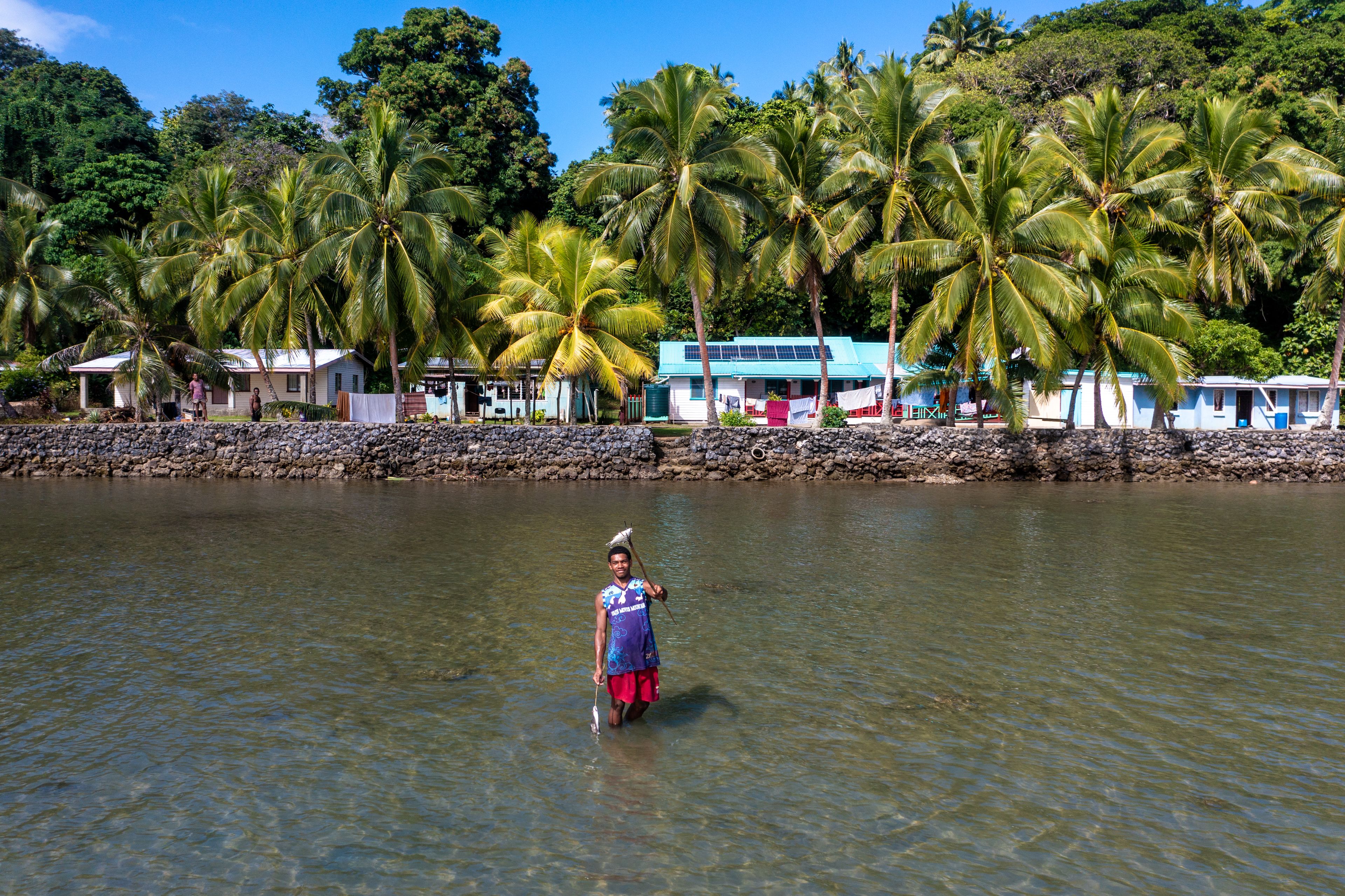
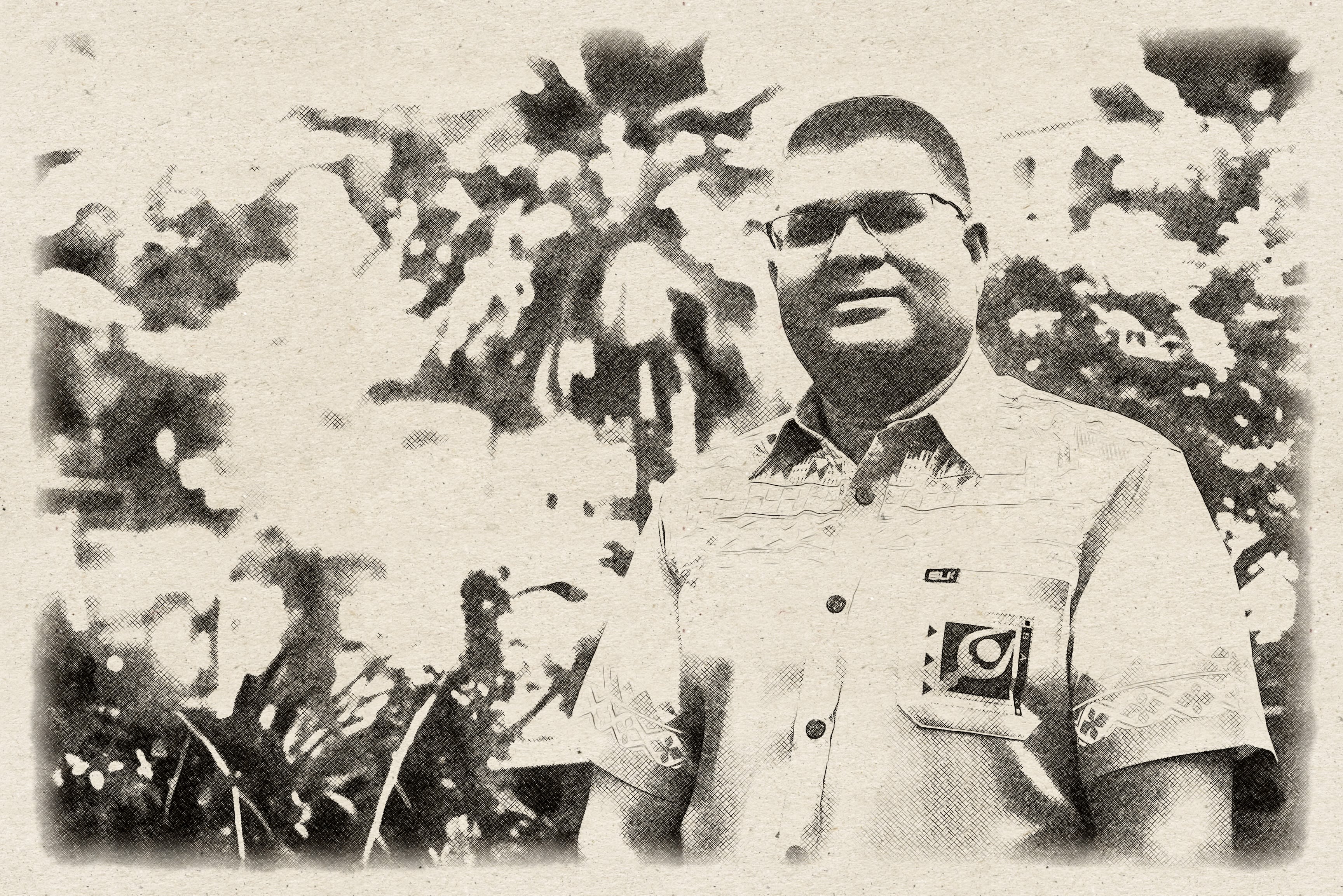
“I experienced first-hand how [climate change] impacts the rural community, those who rely on natural resources, or those who are at the lower end of the income spectrum,”
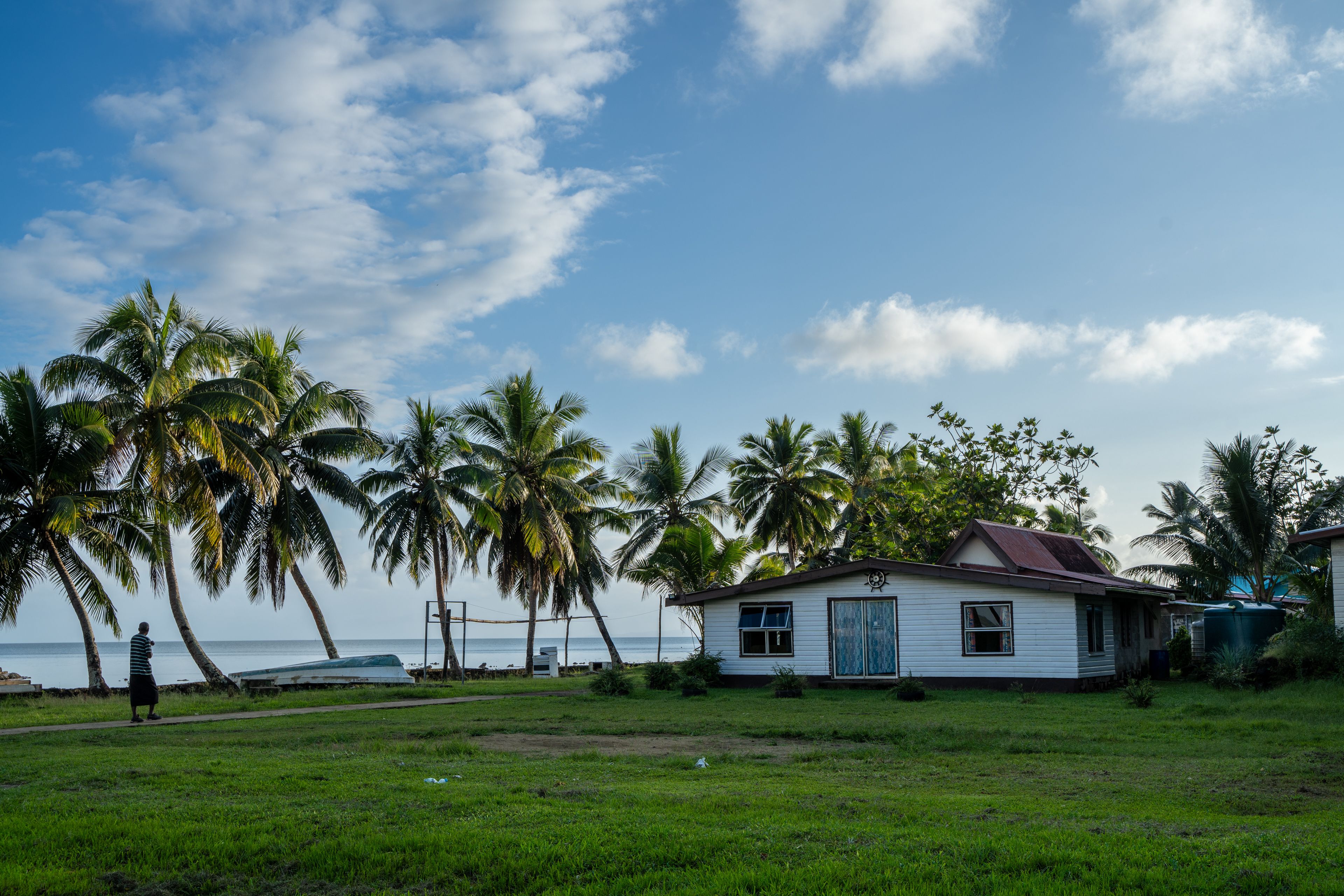
“The issuance of Fiji’s sovereign green bond demonstrates Fiji's interest in financial instruments that not only diversify the financial market offerings but also promote an equivalent increase in appetite from investors to support inclusive and sustainable projects,” said Stefano Mocci, World Bank Group Country Manager for Fiji. ”It sets the groundwork for creating a local sustainable bond market and attracting private sector issuers.”
Six months later, in the United Kingdom, against the pulsating staccato of the drums of the Bati -- traditional grass skirted Fijian warriors -- Fiji’s dual-tranche green bond began trading on the London Stock Exchange Group’s International Securities Market.
To the delight of Governor Ali and his staff, Fiji’s domestic commercial banks also showed record support in the green bond, putting in a combined FJ$40 million tender – the highest amount ever subscribed by the industry.
The bond also laid the foundation for the government of Fiji to issue more specialized bonds, including a sovereign blue bond in 2023 and the scaffolding for a green finance taxonomy – a classification system that identifies sustainable investments -- that is currently under creation with the support of the Australian Government.
Fiji’s big aspirations in the green bond market has helped other climate-vulnerable nations follow suit, says Governor Ali, who is heartened by the growing number of countries – big and small - that have issued green bonds in Fiji’s wake. In 2023, the acceleration in green bond issuance in emerging markets was partly driven by sovereigns, which more than tripled their green bond sales.
“I am glad to see so many more countries, particularly emerging countries, issuing green bonds,” he says. “It means that Fiji is punching well above its weight.”
Healing waters direct from heaven
Far from the London Stock Exchange, in the village of Vatani, the proceeds of Fiji’s green bond have been trickling in to improve lives since 2020.
Located 24 kms east of Suva’s Nausori airport, on a remote peninsula on the main island of Viti Levu, the village has navigated a challenging relationship with water for centuries, says village headman, Watson Somidra Bole.
“Water has always been the main problem here,” says Bole, who has led the village for the past ten years. “I think that’s why most of our forefathers died early, because it was hard for them to find water.”
In the recent past, villagers would employ multiple tactics to collect water each day, says Bole. This included harvesting rainwater in a community tank, collecting more in smaller drums, and navigating a water canoe – morning and night – to petition a nearby island resort for containers of fresh water.
The day-to-day burden was heaviest on women, remembers Leba Sekoula, who would wake at dawn to join a group of women and children every Saturday to canoe, and then hike three kilometers through dense bush to wash clothes in a natural spring and wait for hours while the laundry hung to dry. “It was very difficult for us because it took a whole day, and we would have to carry the clothes and fetch water from the spring too,” Leba remembers.
But following the installation of a road in 2020, the paucity of water in the village began to dramatically improve, thanks to the proceeds from Fiji’s green bond through the government’s dual Rural Water Supply and Rainwater Harvesting Programs. First by water barge, and then by road, dozens of rotund 2,500 and 5,000-liter water harvesting tanks began to arrive. With help from local authorities, villagers learned how to attach the tanks to the gutters on their homes to harvest rainwater. The Water Authority of Fiji also supplied two main community water taps, with clean drinking water piped in from nearby Suva to complete the transformation. Villagers like Sekoula, who can afford the cost, pay to extend this piped water directly into their homes.
Now, 30 out of Vatani’s 40 houses are equipped with water tanks. Others, like Sekoula’s, have installed piped water and working toilets, eradicating the need for informal sanitation measures. A 10,000-liter community tank serves as a surplus during dry periods.
The impact on public health across the villages’ nearly 200 residents was immediate, Sekoula remembers. As the community health worker, the first noticeable difference, she says, was a drop in the number of villagers reporting illness, including diarrhea and skin disease.
“Before the water tanks came into our village, plenty of us got fevers and skin diseases, like scabies in children and ringworm in elders,” says Sekoula. “But when the water came into the village, our skin got brighter and cleaner.”
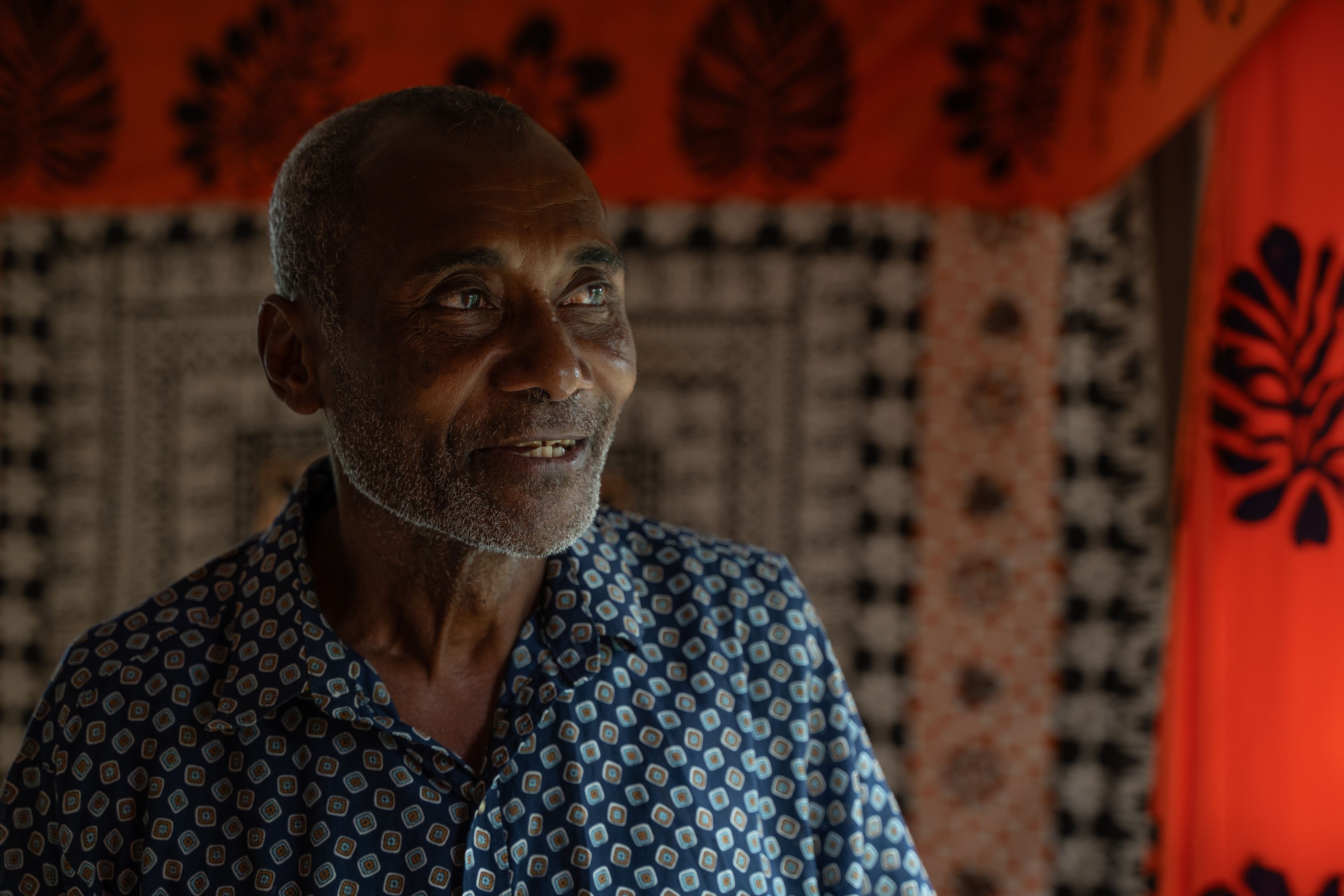
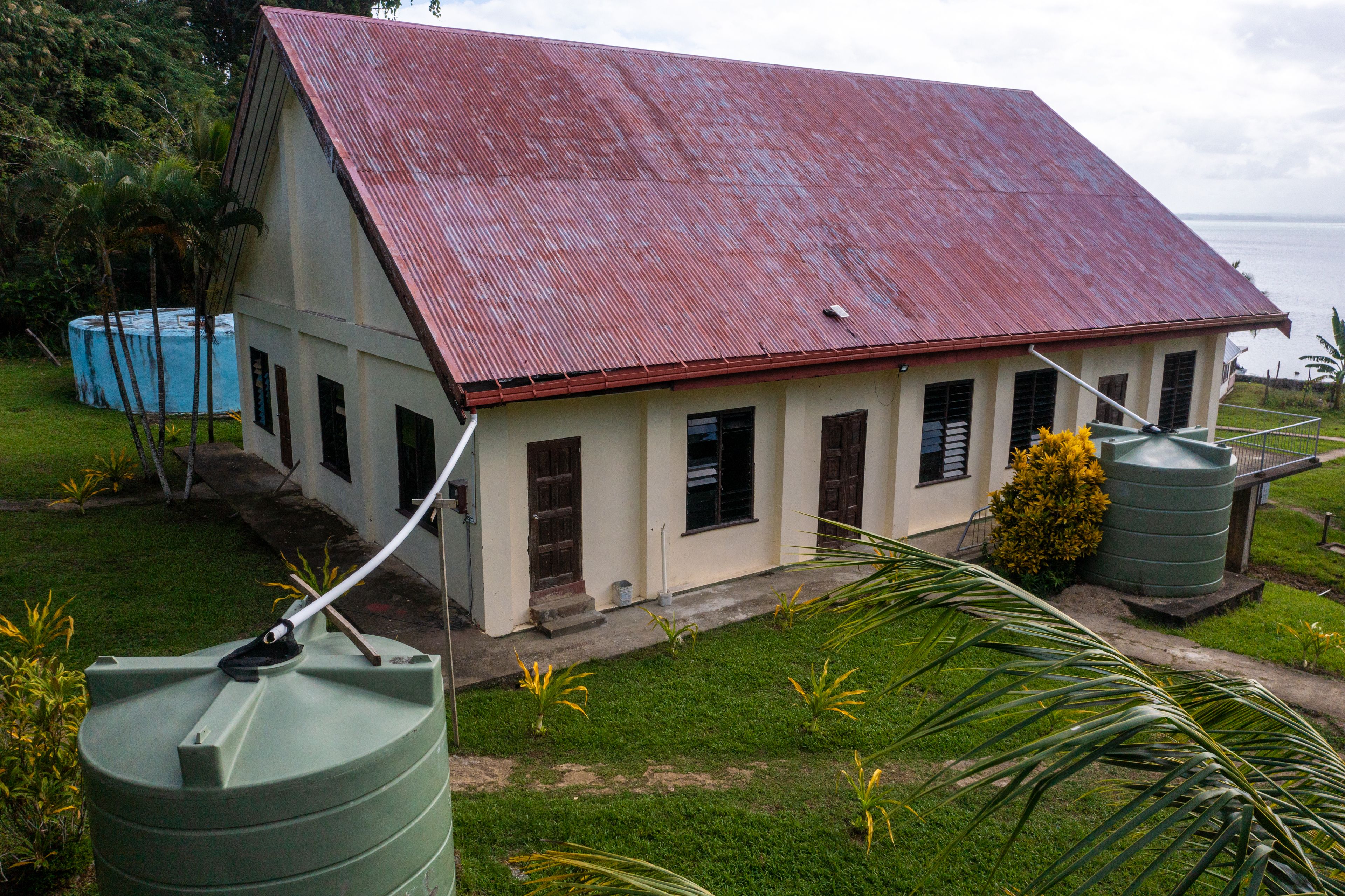
For the first time in the village history, Vatani’s population now boasts multiple octogenarians, Bole says, a surprising development that he links to the clean water supply.
Every day, across the village, unremarkable nuggets of life rooted in the availability of a fresh water supply unfold. Clothes lines, laden with clean laundry, flutter in the ocean breeze. A man cleans his fishing boots beneath the flow of the community tap. Children dip their heads beneath the flow to quench their thirst before resuming play.
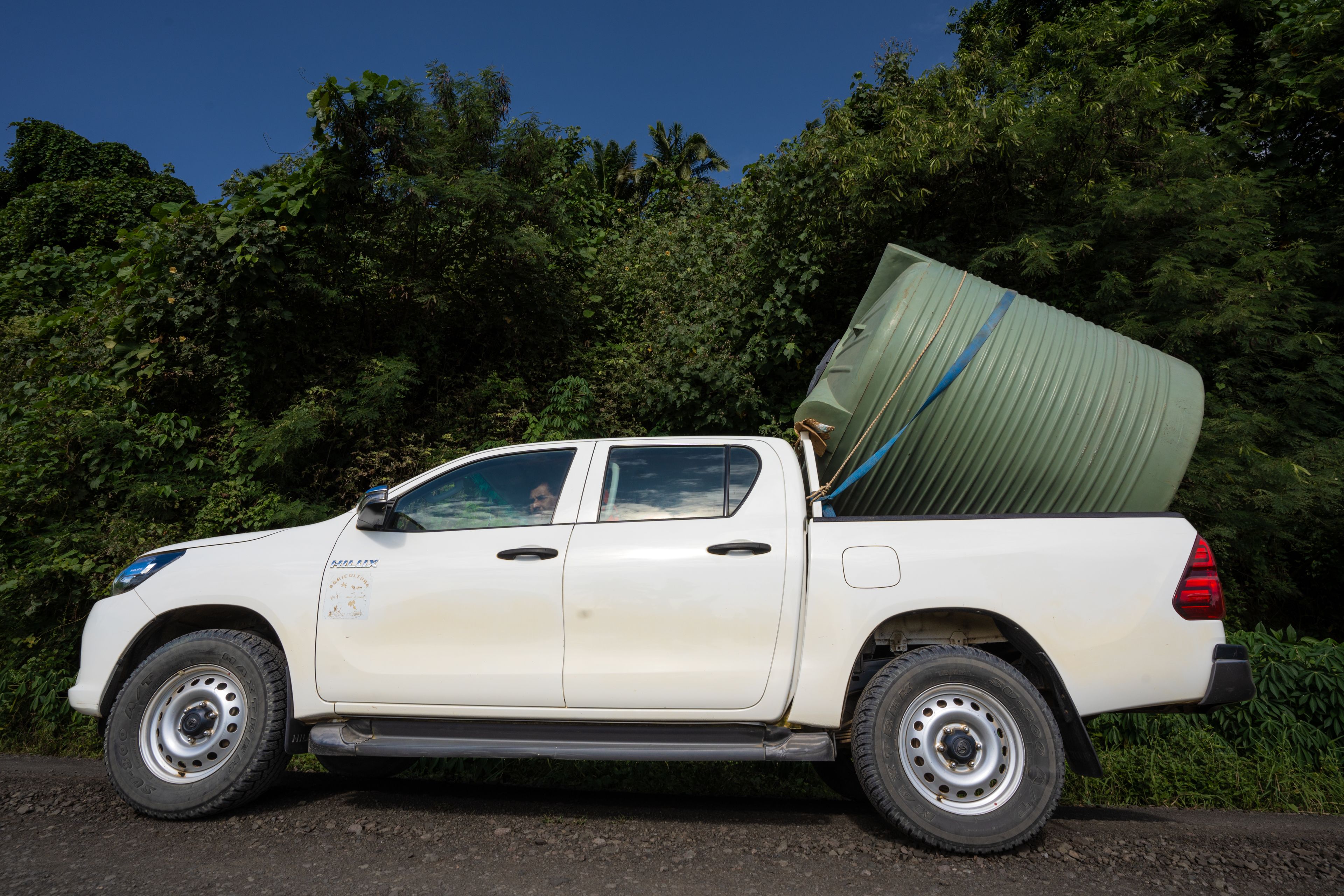
This proves to Governor Ali that raising funds for climate mitigation and adaptation can help the Fijian government improve lives. “For [the villagers in Vatani],” he says, “a small benefit for them goes a long way compared to someone whose income is already high.”
For Leba Sekoula, the benefits of Fiji’s first sovereign bond are so real, she can taste it. After sending her two daughters to school, Sekoula completes her household chores by 9am. With clean laundry in a basket and dishes drying in the kitchen, she’s ready to start work and visit neighbors in need. To satisfy her thirst before she leaves the house, Sekoula drinks a glass of guava juice, mixed with water.
“The water from the tank is very tasty,” she says, “because it comes direct from heaven.”
Published November 2024
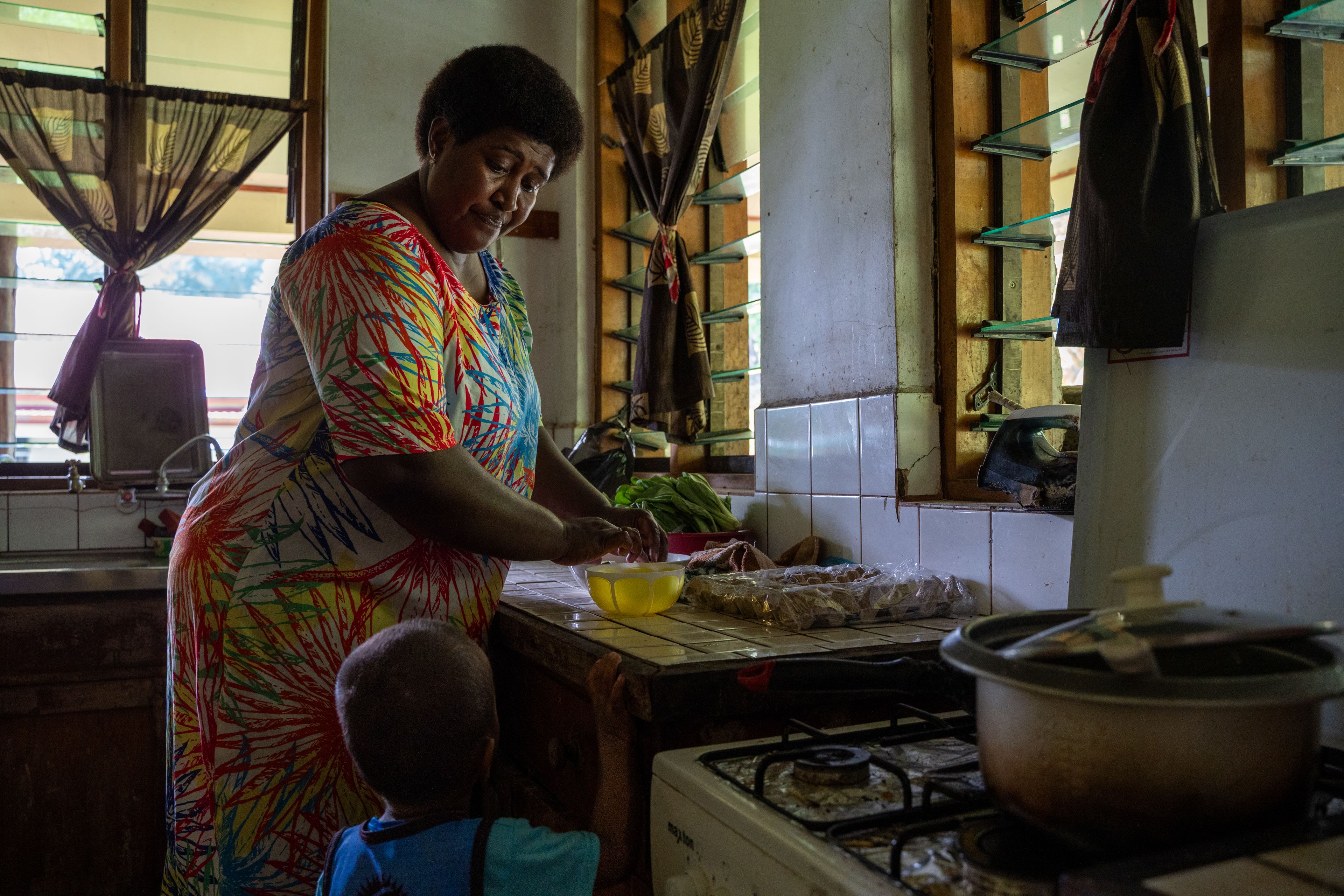
Read more about business solutions to climate change

